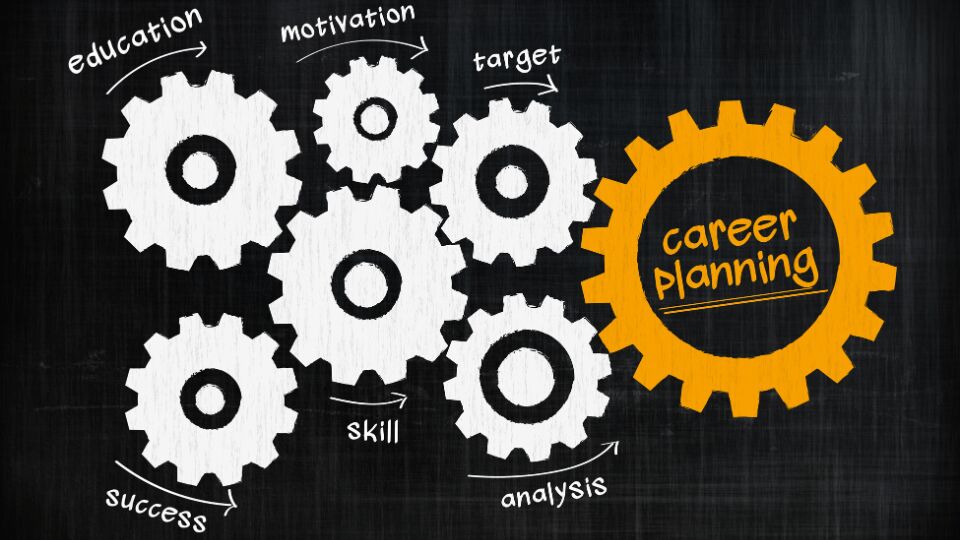Career development is a crucial aspect of professional growth. Creating a well-thought-out career development plan can significantly impact an individual’s success. A good career development plan usually involves defining career goals, auditing one’s skill set, identifying strengths and weaknesses, and creating achievable tasks that tie into final goals. It is a continuous process that requires individuals to learn new skills and continually move up in their careers. According to Career Management Statistics, 87% of millennials consider professional development or career growth opportunities to be very important. This highlights the significance of career development in today’s workforce. This article will provide a step-by-step guide to creating a career development plan that will help individuals identify achievable career goals and design strategies to reach them.
Significance of Career Development Plans
Career development plans serve as roadmaps to chart your course through the terrain of professional growth. They are compasses that guide individuals through the many career paths, fostering a proactive approach to career progression. A comprehensive career development plan transcends immediate professional desires by focusing on both short-term and long-term ambitions. It is unlike sporadic job changes or short-term goals.
This guide is designed to shed light on the intricacies of career development plans. It will offer a way for individuals seeking to strengthen their professional careers, whether you’re a recent graduate navigating the first steps of your career or a seasoned professional contemplating a strategic pivot. This guide equips you with the tools and strategies essential to craft an effective career development plan.
Related: The Future of Career Opportunities: Navigating the Changing Landscape
Understanding a Career Development Plan
Definition and Essence
A career development plan goes way beyond just jotting down goals. It is a personal guide to professional success tailored specifically for you. It’s like a living strategy that maps out the steps you need to take, considering your ambitions, skills, passions, and how you want to grow. This plan acts as a compass that guides you from where you are today to where you dream of being in the future.
Unveiling Its Significance
The significance of a career development plan resonates beyond immediate career advancement. It provides direction, guidance, and empowerment for individuals to take control of their career paths. The significance of a career development plan lies in its ability to benefit both employees and organizations. For individuals, it offers career satisfaction and the opportunity to take charge of their advancement. It also helps employees address their weaknesses and make well-informed decisions about their careers. For organizations, career development planning supports talent retention and helps employees see a future within the company. In today’s competitive job market, a career development plan is essential for individuals to stay relevant and prepared for future career moves.
Distinguishing Components
A career development plan is made up of multifaceted components. These components include self-assessment, goal setting, skill development, networking, and continuous learning. Each element plays a pivotal role in creating a comprehensive roadmap towards achieving career aspirations.
Related: Unlocking Your Potential- Exploring Lucrative Career Opportunities
Key Components of a Successful Career Development Plan
Self-Assessment: The Foundation
Ditch the career treadmill and build a path you love. Self-assessment is your secret weapon: it unlocks your hidden strengths, ignites your passions, and aligns your values with fulfilling goals. Stop chasing the wrong opportunities and start crafting a life that resonates. Unleash your potential; the future of your dream career is waiting. Take the first step: dive into self-assessment today.
Goal Setting: Envisioning the Future
Setting clear, measurable, and achievable goals is fundamental to a career development plan. These goals delineate the milestones and benchmarks crucial for tracking progress. Short-term and long-term aspirations guide an individual’s professional journey.
Skill Development: Nurturing Growth
Skills are the cornerstone of professional advancement. A career development plan that focuses on nurturing the skills in one’s chosen field. This often involves acquiring new competencies and staying updated with industry trends.
Related: How to get a Job
Creating Your Personalized Career Development Plan
Step-by-Step Guide
A personalized career development plan is a systematic approach tailored to individual goals. Begin by outlining your career objectives by considering where you see yourself in the short term (1-3 years) and the long term (5-10 years). This provides a foundation upon which to build your plan. The key steps of a successful career development plan include:
- Self-Assessment & Reflection:
Conduct a thorough self-assessment to identify your strengths, weaknesses, values, and interests. Tools like SWOT analysis (Strengths, Weaknesses, Opportunities, Threats) or personality assessments can aid in this introspective process. This helps you understand your current position and identify areas where you need to grow.
- Goal Setting:
Establish SMART goals (Specific, Measurable, Achievable, Relevant, Time-bound) aligned with your self-assessment. Break down these goals into smaller actionable steps to guide your progress.
- Skill Development Strategy:
Identify the skills crucial for your career progression. Determine how you’ll acquire these skills—be it through formal education, certifications, workshops, or mentorship opportunities. Don’t wait for your organization to provide opportunities. You should showcase your commitment to your career growth and seize available chances.
- Networking and Relationship Building:
Devise a plan to expand your professional network. This involves attending industry events, joining professional associations, and nurturing existing connections. They can provide valuable insights and help you identify opportunities for growth.
- Continuous Learning Plan:
Emphasize the importance of continuous learning. Set aside time for ongoing education, whether through online courses, reading industry publications, or attending seminars. This will help you stay focused and motivated in your career development journey.
Implementing and Reviewing Your Career Development Plan
Execution Strategies
Implementing your career development plan requires discipline and consistent effort. Break down your plan into manageable tasks, prioritizing actions that contribute most significantly to your goals. Maintain a balance between short-term achievements and progress towards long-term objectives.
- Time Management:
Efficiently allocate time to different aspects of your plan. Create a schedule that allows for skill development, networking, and learning activities without overwhelming your current commitments.
- Adaptability and Resilience:
Stay adaptable to changes in your industry or career landscape. Your plan should remain flexible to accommodate unforeseen opportunities or challenges.
Regular Review and Adjustments
Regularly assess your progress against the outlined goals. Set aside time quarterly or bi-annually to review your achievements, recalibrate goals if necessary, and identify areas requiring improvement. Adjustments to your plan should reflect changes in your career trajectory.
Related: The Game Changer: Why Using a Recruitment Agency is Essential for Hiring Top Talent
Tools and Resources for a Career Development Plan
Online Platforms and Apps
Numerous online platforms offer tools and resources tailored for career development planning:
- Goal Tracking Apps:
Tools like Trello, Asana, or Todoist help in organizing and tracking progress towards your career goals.
- Learning Platforms:
Websites like Coursera, LinkedIn Learning, and Udemy provide access to courses spanning various industries and skills.
Mentorship and Networking Resources
- Professional Networking Sites:
Platforms like LinkedIn offer networking opportunities, allowing you to connect with professionals in your field, join groups, and access industry-specific content.
- Mentorship Programs:
Seek out mentorship programs within your industry or through professional organizations to gain insights and guidance from experienced professionals.
Related: 20 Best Remote Staffing Agencies
Conclusion
A career development plan is not only a roadmap but it’s a transformative tool. It empowers individuals to take charge of their professional destinies. By integrating self-assessment, goal setting, skill development, networking, and continuous learning, these plans guide and illuminate the path to fulfilling careers.
Crafting a career development plan is not a one-time task but an ongoing journey. Embrace the iterative nature of this process and allow space for recalibration and adaptation. Your career development plan should evolve as you grow personally and professionally, reflecting your changing aspirations and the dynamic nature of your industry.
- ATS Friendly Resumes: Navigating Applicant Tracking Systems Effectively - December 15, 2023
- Top 12 Good Reasons for Leaving a Job: A Comprehensive Guide - December 12, 2023
- Creating a Career Development Plan: A Step-by-Step Guide - December 5, 2023



